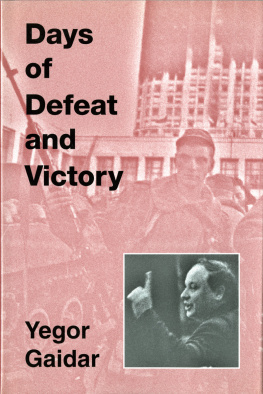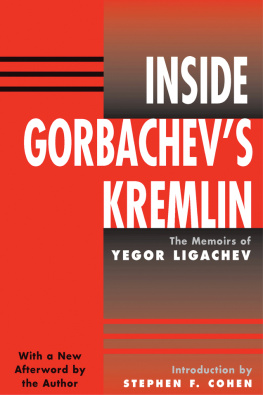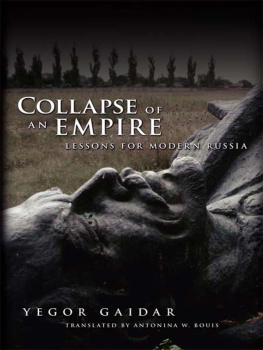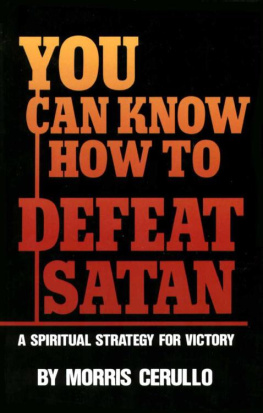Jackson School Publications
in International Studies
Jackson School Publications
in International Studies
Senator Henry M. Jackson was convinced that the study of the history, cultures, political systems, and languages of the worlds major regions was an essential prerequisite for wise decision making in international relations. In recognition of his deep commitment to higher education and advanced scholarship, this series of publications has been established through the generous support of the Henry M. Jackson Foundation, in cooperation with the Henry M. Jackson School of International Studies and the University of Washington Press.
The Crisis of Leninism and the Decline of the West:
The Revolutions of 1989, edited by Daniel Chirot
Sino-Soviet Normalization and Its International
Implications, 19451990, by Lowell Dittmer
Contradictions: Artistic Life, the Socialist State,
and the Chinese Painter Li Huasheng,
by Jerome Silbergeld with Gong Jisui
The Found Generation: Chinese Communists
in Europe during the Twenties,
by Marilyn A. Levine
Rules and Rights in the Middle East: Democracy, Law, and Society,
edited by Ellis Goldberg, Resat Kasaba, and Joel S. Migdal
Can Europe Work? Germany and the
Reconstruction of Postcommunist Societies,
edited by Stephen E. Hanson and Willfried Spohn
Marxist Intellectuals and the Chinese Labor Movement:
A Study of Deng Zhongxia (18941933), by Daniel Y. K. Kwan
Essential Outsiders: Chinese and Jews in the Modern Transformation
of Southeast Asia and Central Europe, edited by Daniel Chirot and
Anthony Reid
Days of Defeat and Victory, by Yegor Gaidar
Days of Defeat
and Victory
Yegor Gaidar
TRANSLATED BY JANE ANN MILLER
FOREWORD BY MICHAEL MCFAUL
The translation of this book
was supported by a generous grant from the
Henry M. Jackson Foundation.
Originally published by Vagrius Publishers, Moscow, in 1996
Copyright 1996 by Vagrius Publishers and Y. Gaidar
English translation copyright 1999 by the University of Washington Press
First paperback edition 2015
Printed in the United States of America
All rights reserved. No part of this publication may be reproduced or transmitted in any form or by any means, electronic or mechanical, including photocopy, recording, or any information storage or retrieval system, without permission in writing from the publisher.
Library of Congress Cataloging-in-Publication Data
Gaidar, E. T. (Egor Timurovich)
[Dniporazhenii i pobed. English]
Days of defeat and victory / Yegor Gaidar ; translated by Jane Ann Miller ;
foreword by Michael McFaul.
p. cm. (Jackson School publications in international studies)
Includes index.
ISBN 978-0-295-99535-9 (alk. paper)
1. Gadar, E. T. (Egor Timurovich) 2. PoliticiansRussia (Federation)Biography. 3. Russia (Federation)Politics and government1991. 4. Russia (Federation)Economic policy1991. I. Title. II. Series.
DK510.766G35 A3 1999
947.086092dc21
[B] 99-052020
The paper used in this publication is acid-free and meets
the minimum requirements of American National Standard
for Information SciencesPermanence of Paper for Printed
Library Materials, ANSI Z39.481984.
But you are not obliged to tell
Your victories from defeats.
Boris Pasternak
Contents
by Michael McFaul
Foreword
Michael McFaul
A ugust 1991 was a momentous month in the history of Russiafilled with both joy and fear. For three days, conservative forces from the Soviet government attempted to roll back the political and economic changes initiated by Mikhail Gorbachev. While Gorbachev was on vacation in the Crimea, the State Committee for the Emergency Situation (GKChP) announced on August 19 that they had assumed responsibility for governing the country. Gorbachev, they claimed, was ill and would return to head this Emergency Committee after his recovery. In making the announcement, the Committee justified their actions as a defensive response to extremist forces and political adventurers who aimed to destroy the Soviet state and economy. To enforce their emergency measures, they sent tanks to occupy strategic positions in Moscow.
Throughout most of Russian and Soviet history, the exercise of force by the state has ended tragically for those in support of change, reform, or progress. This time, however, the reformers struck back. Russian president Boris Yeltsin and his allies, in an umbrella organization of democratic forces called Democratic Russia, spearheaded the resistance to the palace coup attempt. Yeltsins strategy was simple. As the elected president of Russia, he called on Russian citizenscivilian and military aliketo obey his decrees and not those of the Emergency Committee. As in 1917, two independent governments each claimed sovereign authority over the same territory.
Yeltsins appeal served to mobilize popular resistance to the coup attempt on the streets of Moscow. Hundreds of supporters assembled outside the White House only a few hours after receiving news of the coup. By the following day, Democratic Russia had organized two massive demonstrations at which tens of thousands of Muscovites defied Red Army regiments to defend their democratically elected leaders and institutions.
The Soviet putsch quickly unraveled. The organizers of the Emergency Committee had grossly overestimated their power and underestimated the fortitude of Russias democratic forces. For more than a year before the August 1991 coup attempt, politics in Russia had been polarized between those determined to preserve the Soviet ancien rgime and those seeking to destroy it. Several times during this period, moments of compromise between the two camps led many to hope that a negotiated transition was possible. Suddenly, one day in August, members of the conservative camp in this bipolar political environment moved suddenly to regain their former hegemony over the Soviet system. Three days later, their attempt collapsed.
The outcome of the August 1991 putsch dramatically and fundamentally changed the course of Soviet and Russian history. Even for a country blessed and cursed with a history of pivotal turning points, this moment ranks as one of the most important. For the first time since the Bolsheviks seized power in 1917, Soviet authorities had moved to quell societal opposition in Russia and failed. However fleeting in time and localized in place, this successful defiance of Soviet authorities altered the balance of power between the ancien rgime and its challengers in favor of the latter.
The moment was euphoric. For many Russian citizens, perhaps no time is remembered with greater fondness than the initial days after that failed August coup.
In the heady days immediately following the failed coup, Russias reformers took advantage of their windfall political power to arrest coup plotters, storm the Communist Party headquarters, and tear down the statue of Felix Dzerzhinsky, the hated founder of the modern-day KGB. But what to do next? As in all revolutions, destruction of the ancien rgime came first; construction of new political, economic, and social orders in the vacuum created by the Soviet collapse would be much more difficult. Although August 1991 may have signaled the end of both Communist rule and the Soviet state, it remained unclear what kind of political regime, economic system, or society should or could fill the void. Even the borders of the state were uncertain. Especially for those in power, euphoria surrounding the closing of the Soviet past was quickly overshadowed by the uncertainty of Russias future.










